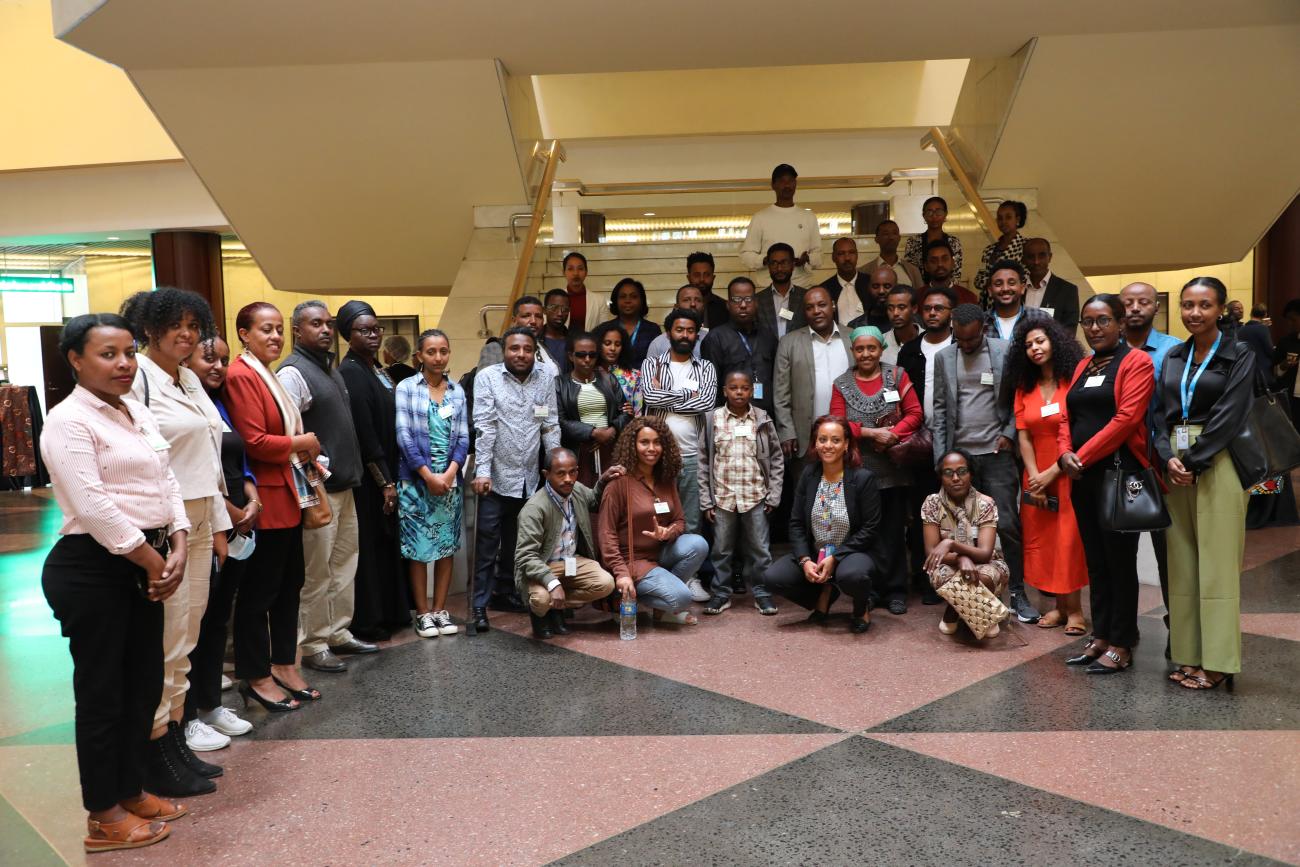UN, Gov’t, people with disabilities discuss challenges, opportunities to deliver on promise of the Agenda 2030 to leave no one behind

The United Nations in Ethiopia organized a weeklong ‘UN Disability Inclusion Awareness’ event to mark the International Day of Persons with Disabilities.
The United Nations in Ethiopia organized a weeklong ‘UN Disability Inclusion Awareness’ event to mark the International Day of Persons with Disabilities from 4-8 December 2023.The event was organized to promote collaboration among various stakeholders on disability inclusion endeavours and to exchange best practices, challenges and learn from each other’s programme /project on disability issues.
The event also saw a consultation with leaders and representatives of Organizations of People with Disabilities on opportunities and challenges facing people with disabilities in Ethiopia.
In the consultation, State Minister of Women and Social Affairs H.E Huria Ali and UN Resident and Humanitarian Coordinator for Ethiopia Dr. Ramiz Alakbarov, emphasized the need to put disability at the centre of any sustainable development initiative.
“We need to put people with disabilities at the front and centre in our efforts towards finding sustainable solutions,” said Dr. Alakbarov.
“The promise to leave no one behind recognizes that development will only be sustainable if it is inclusive. This means everyone, everywhere must have the opportunity to go to school, to access health care, to start a family, have decent work and participate fully in all spheres of economic, social, cultural, and political life.”
“Ensuring disability inclusion at local, national and global levels needs active engagement, effective collaboration and strong leadership of key actors, including persons with disabilities,” Dr. Alakbarov adds.
Speaking at the consultation, State Minister of Women and Social Affairs H.E Huria Ali, reiterated, “Inclusion means ensuring everyone has access to education, employment, basic services and ICTs. We must develop and provide assistive technology including devices and software accessible to People with Disabilities.” >
The consultation brought up issues that need to be addressed by different stakeholders including inclusive education and assistive devices and their treatment under the Ethiopian tax system. The participants underlined the significance of disaggregated data on disability for informed decision-making as well as formation, adaptation and improvement of domestic inclusive legal frameworks. Key issues during the consultation also include promoting public awareness on disability and multi-sectoral collaboration, mobilization of domestic financial resources and fundraising activities. Obtaining a driving license for people with hearing impairments and the need for accessible housing were highlighted by participants from organizations of people with disabilities.
At the end of the session, participants agreed to establish a platform that will facilitate online and offline discussions among government, UN agencies, OPDs and other stakeholders.
UN Resident and Humanitarian Coordinator, Dr. Ramiz Alakbarov, also reiterated the UN’s commitment to inclusion of people with disabilities in all the work of the United Nations.
"Consultation with persons with disabilities in their full diversity and their full inclusion in decision-making-processes is the foundation for effectively addressing their challenges and ensuring their rights,” said Dr. Alakbarov.
“Looking ahead, the 2030 Agenda – together with the Convention on the Rights of Persons with Disabilities – will remain our priority towards ensuring inclusive development.”

















